Mirrorless Photography Course
Electronic Viewfinder (EVF) Mirrorless Cameras
What’s the difference between a Mirrorless & EVF Camera.
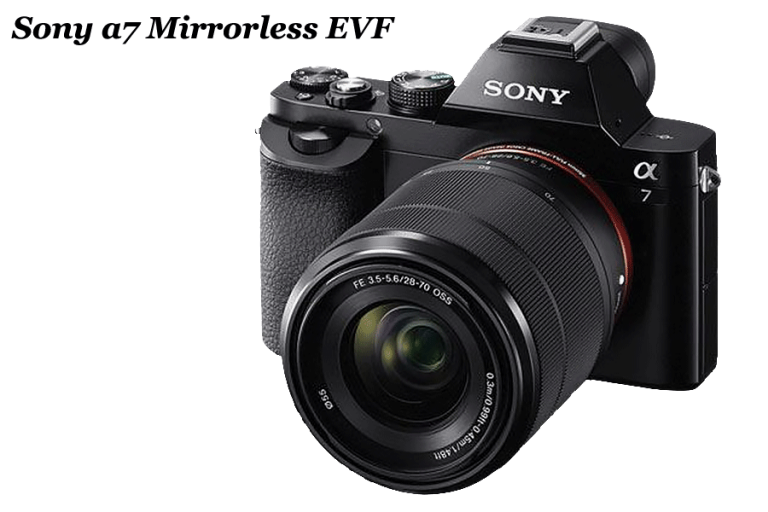
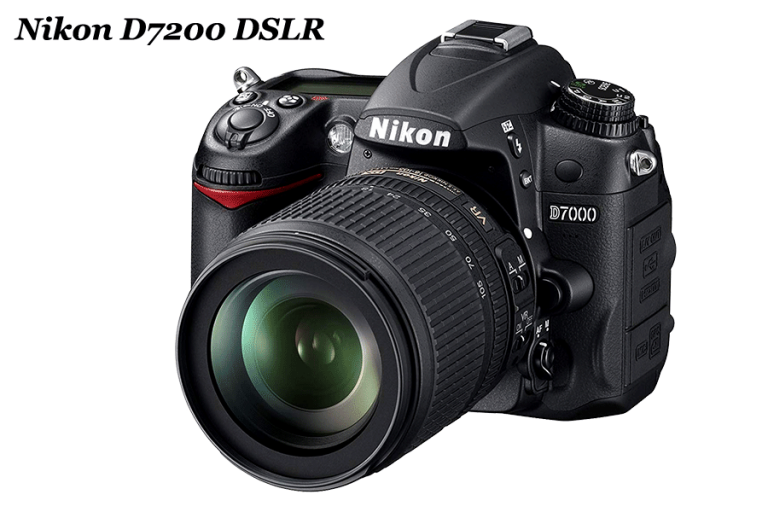
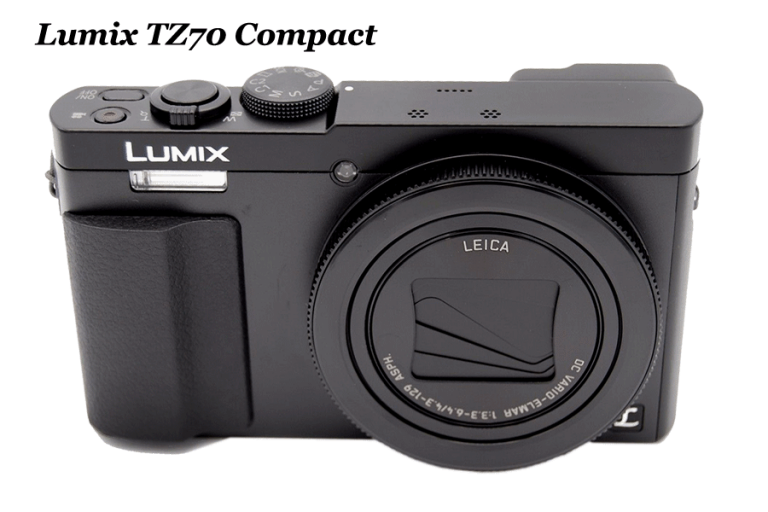
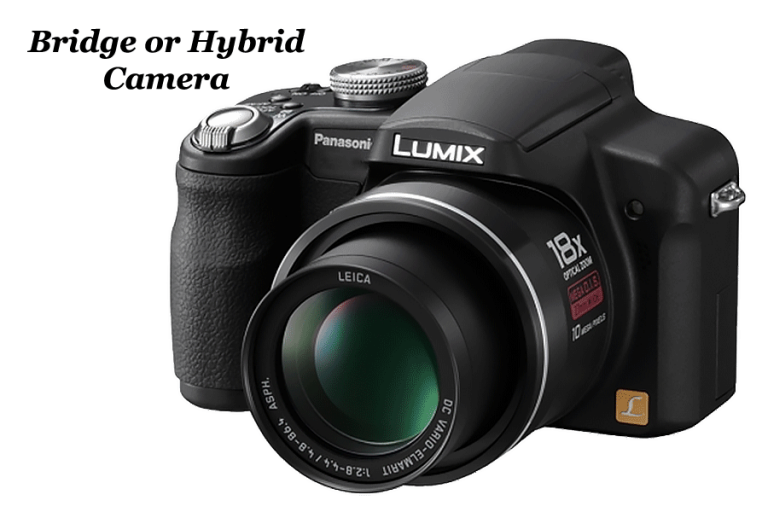
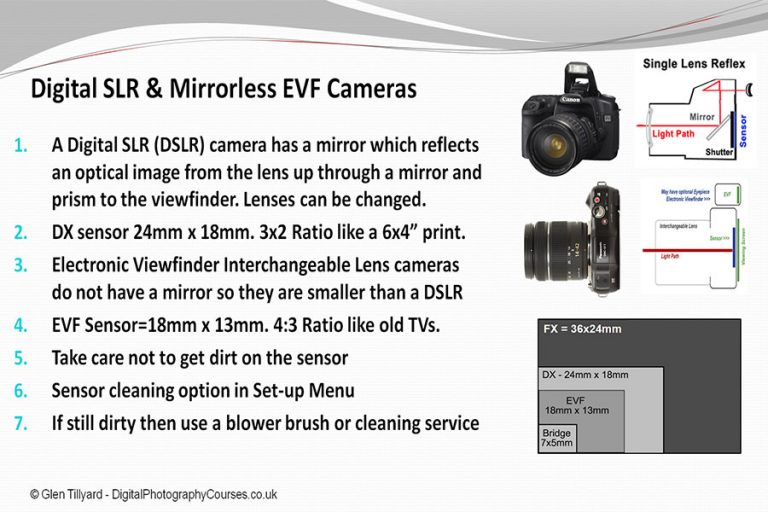
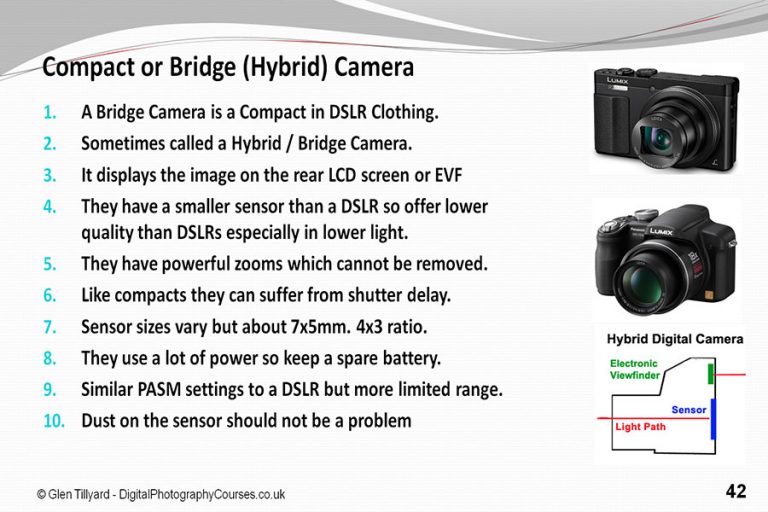
Which Cameras are suitable for the Beginners Course?
Which Camera Should You Get?
DSLR or Mirrorless EVF
The choice between DSLR and Mirrorless is less obvious as they both offer similar quality, have a similar range of lenses, flashguns and accessories.
DSLR have a proven track record, have a massive second hand market and have batteries that last longer than EVF cameras.
Electronic Viewfinder Cameras
Electronic Viewfinder are usually smaller and lighter, as they don’t need a mirror assemble, but may also have smaller sensor. Early EVF cameras used to have rubbish viewfinders and be slower to react but this is improving all the time.
Because they are using the power all time and batteries tend to be smaller, due to the smaller body size, EVF cameras use a lot of power so spare batteries should be considered an essential item. EVF Cameras tend to have a lot more settings and features which can be a blessing or a curse depending on your point of view.
If you would like some advice on which type of camera to buy then drop me an email stating what you want it for and your budget and I’ll try to help.
email glen@digitalphotographycourses.co.uk
The future of the Digital SLR
A great day. Lots of technical information to process but great course notes for me to refer back to. It’s great to have all the camera settings explained clearly so I can use them to improve my photography shots. James Wesson
Another great day with lots of useful info and a really good next step up from the Beginners Course. It’s given me another boost to get out and practice my new skills. I’m already looking forward to my next course. Joanna Boughy
This course was particularly good with regards to understanding the exposure triangle and I found this invaluable. It’s quite an intensive course but I feel a lot happier finding my way around the various camera settings. Now to start saving up for the next one.
Karen Collinson
I thoroughly enjoyed this course. Everything I wanted to know about the more advanced techniques was covered. I’m really looking forward to going out and trying what I’ve learnt, especially regarding shutter speeds combined with aperture settings.
Margaret Rose
